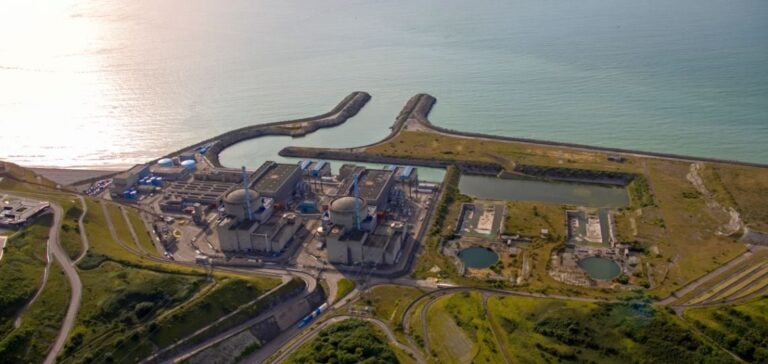EDF has announced a significant reduction in construction times for its EPR2 reactors, aiming to reach 70 months.
This ambitious program, supported by President Emmanuel Macron, calls for the construction of six EPR2 reactors, with an option for a further eight.
Luc Rémont, CEO of EDF, stresses the importance of re-establishing an industrial cadence in nuclear construction, a sector that has slowed considerably in recent decades.
The French nuclear sector has declined sharply, from producing five reactors a year to building them over two decades. The Flamanville EPR reactor, for example, is 12 years behind schedule.
EDF is seeking to remedy this situation by optimizing its construction processes and enhancing the skills of its teams.
Strategies for achieving objectives
To achieve this time reduction, EDF is implementing measures to improve construction efficiency and quality.
The company relies on repetition and practice of construction processes to hone the skills of its engineers and technicians.
The first reactors in this series may not benefit immediately from these efficiency gains, but subsequent projects should.
Building an EPR2 reactor in 70 months represents a considerable challenge, especially after the experience of the Flamanville EPR reactor, which took almost 17 years to build.
Adjustments to processes and improvements to construction methods are essential if we are to meet our targets.
Impact on the French energy sector
The success of this program could have significant implications for the nuclear industry in France.
By reducing construction times, EDF aims to boost nuclear power generation capacity, thereby contributing to the stability of the country’s energy supply.
This initiative is part of a wider strategy to revitalize the nuclear sector and improve its competitiveness on the global market.
Implementing these reactors more quickly and efficiently could also influence the international perception of the nuclear industry.
The results of current projects will determine EDF’s ability to maintain a leading position in the sector.
Implications for the future of energy
Reducing construction times is a key step towards revitalizing the French nuclear industry.
Achieving the targets set by EDF could redefine the framework for nuclear power generation in the country and provide a solid foundation for future projects.
Future developments will be closely monitored, as they will determine the impact of this revival on the French energy sector.






















